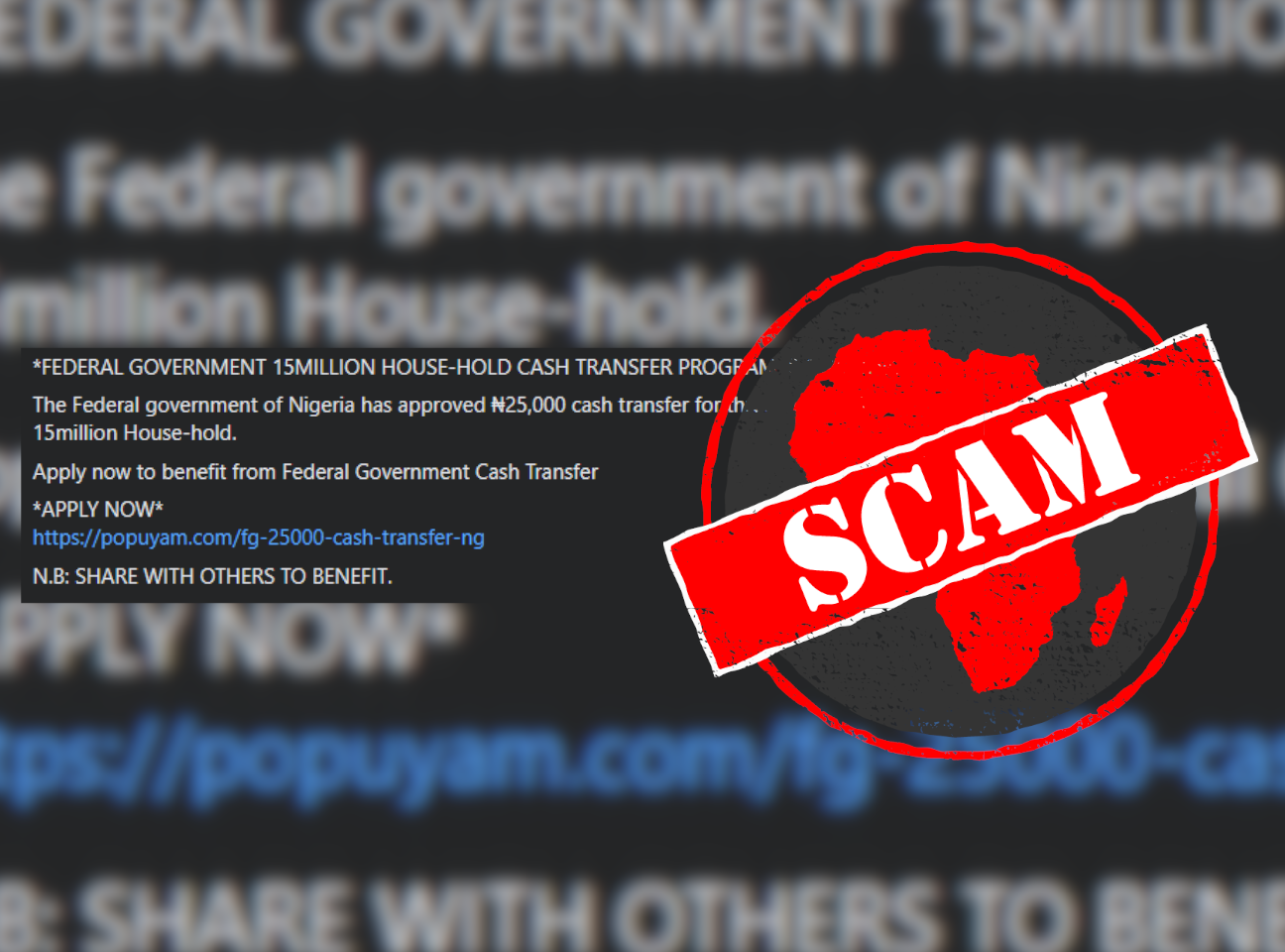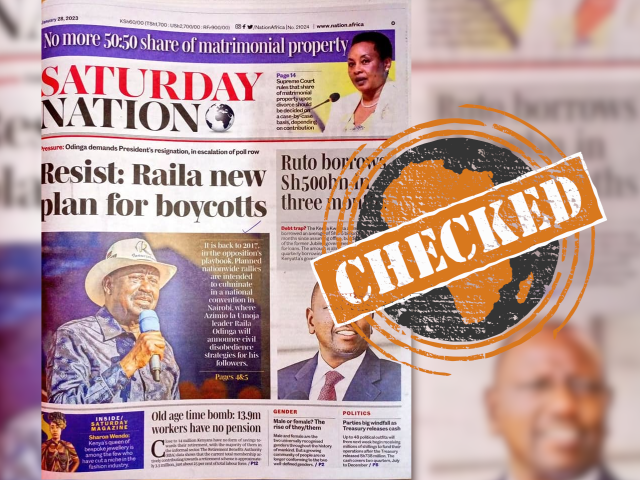IN SHORT: Beneficiaries of the Nigerian government’s cash transfer programme are picked from the national social register. Nigerians should ignore Facebook posts that encourage them to apply via a malicious website.
A message circulating on Facebook and WhatsApp claims that the Nigerian government has approved N25,000 cash transfers for three months to 15 million households.
One of the posts, dated 22 October 2023, reads: “*FEDERAL GOVERNMENT 15MILLION HOUSE-HOLD CASH TRANSFER PROGRAM IS ONGOING* The Federal government of Nigeria has approved ₦25,000 cash transfer for three months to 15 million households.”
The post, which features a website link, encourages users to “apply now” and share it with others.
Similar claims can be found here, here, here, and here. Are they to be trusted?

Official programme launched by ministry
On 8 October, Nigeria’s minister of humanitarian affairs and poverty alleviation, Betta Edu, announced the government's plan to launch the “conditional cash transfer policy for 15 million households”.
The programme officially launched on 17 October after potential beneficiaries had been verified. The recipients were picked from the country’s national social register, which lists poor and vulnerable households.
The programme had agents who verified and captured the beneficiaries’ details, such as their bank verification number and national identification number, before money was paid out.
We found no public mention of a website where the beneficiaries could apply for the cash transfer.
Ignore malicious website
We clicked on the link attached to the suspicious post, which led us to a site headlined: “WELCOME TO FG CASH TRANSFER TO 15M HOUSEHOLDS REGISTRATION PORTAL.”
We were asked to fill in our personal information, including name, email, phone number and state. The second page asked us to “validate” our bank account number.
“Congratulations, You are amoung the selected people to receive the cash transfer from FG,” read a message on the last page. But there was a catch. We were asked to share the website link with five groups or 15 friends on WhatsApp to receive the money. Despite this, we could proceed without sharing the link on WhatsApp.
Once we completed the process, we were redirected to a website that has details about scholarship awards in the US and Canada. It has nothing to do with the Nigerian government’s grant and this is suspicious.
This is a tactic known as engagement bait. The more users engage with the Facebook post – by liking, sharing, commenting and clicking on the attached link – the more its reach increases. This not only directs traffic to the malicious website, but could also lead to fraudsters obtaining the user’s personal and banking information.
The federal government has not set up a website for cash transfer applications. Instead, names for the new programme are taken from the social register.
To avoid falling victim to scams on Facebook, read our guide on how to spot them.
Republish our content for free
For publishers: what to do if your post is rated false
A fact-checker has rated your Facebook or Instagram post as “false”, “altered”, “partly false” or “missing context”. This could have serious consequences. What do you do?
Click on our guide for the steps you should follow.
Publishers guideAfrica Check teams up with Facebook
Africa Check is a partner in Meta's third-party fact-checking programme to help stop the spread of false information on social media.
The content we rate as “false” will be downgraded on Facebook and Instagram. This means fewer people will see it.
You can also help identify false information on Facebook. This guide explains how.





Add new comment